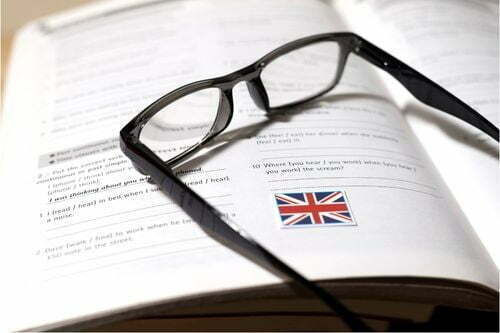Table of Contents
Tenses assist you in describing actions that occur at different times. It aids in clarifying your context and the information you are attempting to convey. It also enables you to construct complex sentence structures. So, if you want to be able to communicate information clearly and quickly, you should be familiar with all twelve tenses quizzes and how one can use them. Here are some tenses quiz to brush up on your grammar.
Types of Tenses

Before we get the quizzes, let us first understand various tenses.
Past tense
Simple past tense
One can use it to describe an action that occurred in the past. A time adverb frequently follows it. You can use it without a time adverb. One usually applies it to previous habits.
Past continuous tense
In English, the past continuous tense is very crucial. We use it to express what we were doing at a particular point in the past.
Past perfect tense
This tense refers to an event that occurred in the past. If two actions occurred in the past, the past perfect tense shows the earlier action.
Past perfect continuous tense
The past continuous tense, also known as the past progressive tense, refers to an ongoing action or state occurring at some point in the past.
Present tense
Simple present tense
One can use it to express everyday activities, facts, and universal truths. The simple present is a verb tense that has two main applications. When an action is happening right now or regularly (or insistently, which is why it’s sometimes called present indefinite), we use the simple present tense.
Present continuous tense
The present continuous tense, like the simple present tense, is commonly used to describe an action taking place in the present. The only difference is that it refers to an action currently taking place or progressing.
Present perfect tense
The present perfect tense describes activities that are complete.
Present perfect continuous tense
When the emphasis is on action yet to finish or complete, we use the present perfect continuous.
Future tense
Simple future tense
Future tense refers to the time after speaking a sentence. Future tense expresses upcoming events and happenings.
Future continuous tense
One can use it to describe an action that will take place or continue in the future.
Future perfect tense

One can use it to express an action that will occur/happen in the future and indicates completion by a specific time.
Future perfect continuous tense
One can use it to describe actions that will begin at a particular time in the future and continue for an indefinite period.
Here are some tenses quizzes to test your knowledge.
1. This time tomorrow, I ____ on the beach.
- am lying
- will be lying (correct answer)
- will lie
2. She said that she ___ help me
- will
- shall
- would (correct answer)
3. Phone me when you ___ time.
- have (correct answer)
- would have
- will have
4. Ira’s mom ___ her home from school.
- drived
- driving
- drives (correct answer)
5. One day last year, Ron ___ for his mom at the school.
- will wait
- wait
- waited (correct answer)
6. Just before Sandra got there, a tree branch ___ on the car.
- crash
- will crash
- crashed (correct answer)
7. You ___ an accident if you go on driving like that.
- are having
- will have (correct answer)
- would have
8. The phone ___ while I was having dinner.
- will ring
- rang (correct answer)
- was having
9. When we were kids, we ___ our own toys.
- will make
- made (correct answer)
- had made
10. I ___ Korean before I moved to Korea.
- will learn
- had learned (correct answer)
- have learned
11. I can’t dance because I ___ my leg.
- have broken (correct answer)
- had broken
- broke
12. My eyes hurt every time I ___ video games.
- played
- play (correct answer)
- had played
13. She ___ the door while I was having lunch.
- knocked (correct answer)
- will knock
- had knocked
14. It ___ the first time I ___ eaten gimbap.
- is – am
- was – have
- was – had (correct answer)
15. I ___ her since 2020.
- didn’t see
- don’t see
- haven’t seen (correct answer)
Tenses rules table
If you could not solve the above tenses quiz, here is the table to help you understand it better.
| Tenses | Tenses rule |
| Past simple tense | Subject + v2 + object |
| Past perfect tense | Subject + had + v3 + object |
| Past continuous tense | Subject + was + v1 + ing + object (singular)Subject + were + v1 + ing + object (plural) |
| Past perfect continuous tense | Subject + had been + v1 + ing + object |
| Present simple tense | Subject + v1 + s/es + object (singular) Subject + v1 + object (plural) |
| Present perfect tense | Subject + has + v3 + object (singular) Subject + have + v3 + object (plural) |
| Present continuous tense | Subject + is/am/are + v1 + ing + object |
| Present perfect continuous tense | Subject + has been + v1 + ing + object (singular)Subject + have been + v1 + ing + object (plural) |
| Future simple tense | Subject + will/shall + v1 + object |
| Future perfect tense | Subject + will have/shall have + v3 + object |
| Future continuous tense | Subject + will be/shall be + ing + v1 + object |
| Future perfect continuous tense | Subject + will have been + v1 + ing + object |
Key takeaways
- Tenses are a critical part of the English language. Knowing your tenses makes it easy for you to communicate and have simple conversations.
- There are three tenses types, further divided into four subcategories for each tense. So, in total, there are twelve tenses.
- When you solve the tenses quiz, you will clearly know where you stand and how much harder work you need to put into learning tenses.
Did you find this blog informative? If so, please share your thoughts in the comments below. Click here to contact us for more information on the tenses quiz. We would be happy to assist you with your queries.
Liked this blog? Read next: English speech topics | Best topics to engage your audience!
FAQs
Q1. Which is the most difficult tense to understand?
Answer- The present perfect tense is arguably the most challenging tense in English to understand. Since one can use it in various ways, and it is difficult to interpret in other languages. Also, one cannot use the equivalent tense in the same way.
Q2. Who invented tenses in English?
Answer- The people behind the discovery of tenses are Bybee, Joan L., Revere Perkins, and William Pagliuca (1994) in the University of Chicago Press.
Q3. What is the introduction of tense?
Answer- Verbs are frequently used in English grammar to imply or denote the time when an event occurred. Tenses are verbs that take on different forms to demonstrate the time of an action, event, or condition by changing their form.







